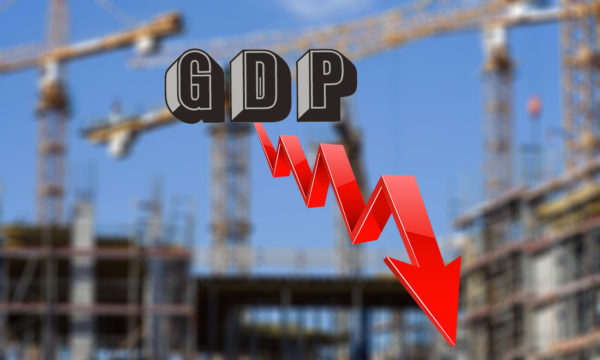◎ In the first two weeks of 2018, the local administrations of Inner Mongolia and Tianjin confessed to having previously faked economic data.
In the first two weeks of 2018, the local administrations of Inner Mongolia and Tianjin confessed to having previously faked economic data.
On Jan. 7, the Inner Mongolia authorities declared that its industrial data for 2016 was inflated by 40 percent (290 billion yuan, or about $45 billion) and its fiscal revenue for that year should be revised down by 26 percent. Meanwhile, the authorities of Tianjin’s Binhai district admitted that its 2016 GDP figure was closer to 665 billion yuan instead of its earlier stated official figure of 1 trillion yuan, meaning that the Binhai government had overstated the district’s GDP growth by nearly a third.
Both Inner Mongolia and Binhai authorities announced the discrepancies in their economic figures as provincial and city governments were preparing to report their 2017 GDP figures.
The backdrop: Provincial authorities cooking GDP figures is a hangover practice from the Jiang Zemin era (1998-2012) and an open secret. Chinese officials rushed to inflate their GDP data because their promotion was benchmarked to securing stellar economic numbers, and for many years regional GDP figures curiously outstripped the national GDP.
In 2015 for example, the National Bureau of Statistics announced a national GDP of 67.7 trillion yuan, but summing up the individual GDP of China’s 31 provinces results in a total GDP of 72.5 trillion yuan. The 4.8 trillion yuan difference between the two figures is equivalent to Jiangsu Province’s nominal GDP in 2015.
Another prominent case of fake data involves the northeastern province of Liaoning. In January 2017, the Liaoning authorities admitted to fabricating fiscal data from 2011 to 2014. The confession came after central inspection team probes in 2014 and 2016 found the Liaoning authorities guilty of cooking economic data. And when premier Li Keqiang was Liaoning chief in 2007, he famously stated that China’s GDP figures were all “man-made.”
Why it matters: Given that Inner Mongolia and Tianjin had faked their 2016 GDP figures by 30 to 40 percent, it is likely that other provincial administrations had too overstated their GDP by at least 20 percent. This means that local government debt could rise substantially.
Our take:
1. Beijing has frequently denied faking economic data (only Li Keqiang has been somewhat honest), so why confess now? One very likely possibility is that the economic situation in China is very severe, and the various local governments can no longer afford to fabricate data without inviting trouble upon themselves.
- 1.1. Local administrations hugely disadvantage themselves by faking data. That’s because the central authorities will reduce funding to areas that report healthy fiscal revenue, resulting in those regions having less money for fiscal expenditure.
- 1.2. Provinces with higher revenue have to pay more taxes. This increased tax burden was previously passed on to businesses, a practice that worsens the economic situation over time.
2. Since taking office in 2012, Xi Jinping has purged many Jiang faction officials and shifted the official evaluation benchmark from GDP growth to environmental protection. So it makes sense that Chinese officials are now exposing their predecessors’ fraudulent practice to pass the buck and protect their political achievements.
3. America’s 2017 economic policies (tax cut; Federal Reserve increasing interest rates and shrinking balance sheet) may lead to the Chinese economy experiencing a “bank run” effect. China’s future economic outlook is very gloomy. Exposing the 2016 GDP figures as fake serves to cover up the extent to which the Chinese economy has deteriorated in 2017 and give the impression of “growth.”
4. The Xi leadership’s emphasize on “high-quality development” and environmental protection appear to be partly efforts to redirect attention away from China’s economic decline.
What’s next: We believe that other provincial governments, particularly those whose leadership changed hands after the 19th Party Congress reshuffle, will start reporting earlier fabricated GDP figures.












